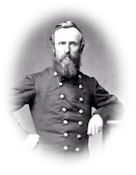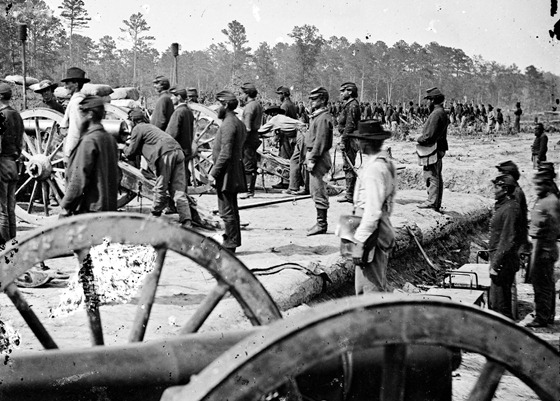A Change of Base.
June 1. And now something else has turned up, and here we are encamped just outside the city and behind our batteries. The order to move took us by surprise, as the first notice we had was to pick up our traps and be ready to march in half an hour. At the time appointed everything was packed and loaded on the wagons and we were on the march. Dark found us here with our tents up ready for housekeeping, and our coffee boiling for supper. All this and a march of twelve miles in one afternoon. Two companies, G and K, are left back for a few days, and are assisted by cavalry. All the advance regiments are drawn in behind the forts and the whole division, with the exception of three regiments, are now here. I have heard no reason why the division is concentrated, but perhaps the general expects company and intends to be in readiness to give them a right royal reception. Our line of defenses extends from the Neuse to the Trent rivers, a distance of about one mile, and on the line are three forts mounting in all 32 guns. There are also eleven light batteries of six guns each, with gunboats on the rivers that have an enfilading range in front of the line. With 10,000 troops behind the works, with a wide open field in front, it looks as though our position was a pretty safe one, and if anybody comes here with any hostile intent, hell will begin to fill up pretty soon after they get within the range of our guns. Our life up in the woods, on the whole was rather a pleasant one; I reckon the boys rather enjoyed it and were in no hurry about leaving. There was less restraint on them, they could do a little more as they pleased and were free from the drills, parades, red tape and formalities of the regular camp, with just enough excitement about it to keep them from getting dreary and homesick.






